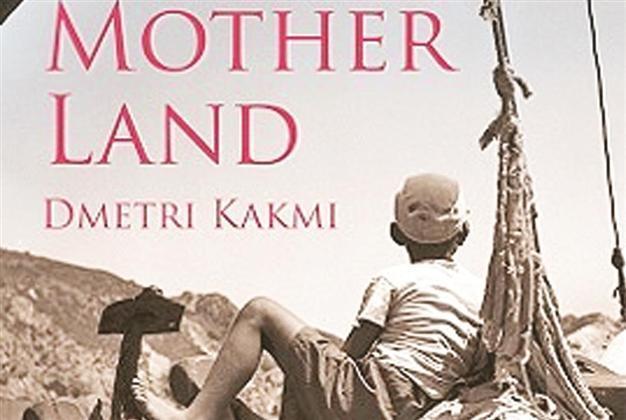Remembrance of a bygone Aegean
William Armstrong - william.armstrong@hdn.com.tr
 ‘Mother Land’ by Dmetri Kakmi
‘Mother Land’ by Dmetri Kakmi
(Eland, 2009, 288 pages, 40TL)“Rediscovering roots” memoirs have achieved dubious popularity in recent years. The formula typically follows a literary émigré living in the affluent west going back to rediscover a conflicted (and hopefully exotic) past – a journey that inevitably ends up redefining their sense of personal identity. In the case of Dmitri Kakmi’s “Mother Land,” the “new world” is Australia, while the old one is the Aegean island of Bozcaada, known to his Greek family as “Tenedos,” from which he migrated as a 10-year-old boy in 1971. Fortunately, Kakmi mostly stays wise to the clichés of the genre, and manages to deliver a lyrical though unsentimental read.
At the time when he was growing up, Tenedos (as the island is referred to throughout the book) was still home to a centuries-old Greek community. As described in the book, however, it’s a community over which a shadow was gradually falling. The narrator’s mother is damaged by her time spent in Istanbul in the 1950s, when anti-Greek riots led to increasing numbers leaving the Turkish capital. The island itself is haunted by memories of “the exodus of 1964” that followed violence in Cyprus; church bells have been forced to stop ringing by the government; criminals and madmen have started to be shipped over from mainland Turkey to settle in the abandoned houses; the demographic balance is tipping irreversibly: “The place is emptying. Every day there is another deserted house or shop where, once, people lived, voices rang, children laughed. Friends, neighbors and relatives, they are vanishing, leaving, going someplace else.” On the domestic front, amenities are sparse, and life for all the islanders is portrayed throughout as unrelentingly primitive. Kakmi’s own family situation is complicated, with his father mostly living at sea as a fisherman and prone to fits of alcohol-fuelled violence when home.
Nevertheless, for the young narrator, existence on a “fishbowl between two continents” is still remembered fondly. His school friends were both Greeks and Turks, young and blithely unaware of the seismic social pressures that are beginning to exert their force. They remain unschooled in cultural bigotry, at least until a moving passage mid-way through the book, when his new Grade Three teacher curses him in front of the class: “Because you are not a Turk, may the bread you eat be poisonous.” A tale of social and cultural conflict thus becomes subtly intertwined with the author’s own personal coming-of-age story. A boy loses his innocence on an island which had long ago lost its innocence.
Needless to say, it doesn’t come as much of a surprise when his family eventually gives up and emigrates to start a new life in Australia. By that point, Kakmi is fully mature enough to grasp the significance of the move, but his sense of loss is only to become keener over the course of his life. In the end, he makes a return to his childhood home 30 years later, a trip that is poetically described in the final section of the book.
“Mother Land” is an effectively written remembrance of a childhood cleaved in two – moving but tough-minded. I’m not sure that its appeal would extend to those not interested in the recent history of the Aegean, but it’s a satisfying read for those who are.
Released this week
‘Soldiers’ Tales: Two Palestinian Jewish Soldiers in the Ottoman Army During the First World War’ by Glenda Abramson
(Vallentine Mitchell & Co, $58, pp 280)
William Armstrong,
 ‘Mother Land’ by Dmetri Kakmi
‘Mother Land’ by Dmetri Kakmi 